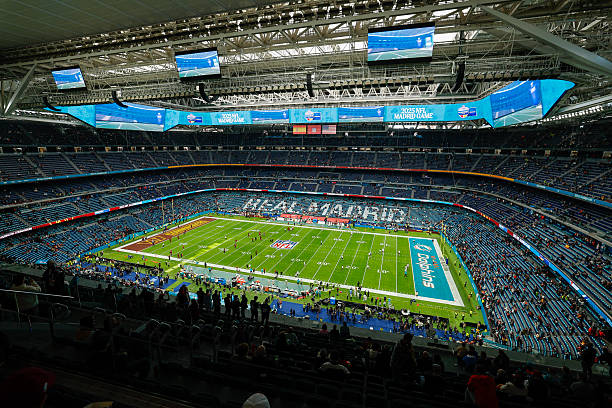
With the National Football League’s international slate concluding last week, so wraps up another year of the league playing games outside of the country. The clash between the Washington Commanders and Miami Dolphins was the first to be played in Spain, with the game hosted at the Santiago Bernabeu, which usually houses soccer club Real Madrid.
While the league uses these games to expand into new markets, are they really worth playing? Are these games really worth taking a home game away from a team?
Contributors Carolina Martinez and Jake Aimone debate whether these games are suitable for the NFL or if they should focus on playing games inside the country.
Yes
By Carolina Martinez
Yes, it’s a smart strategic move for the NFL to continue scheduling international games. The first international game was an exhibition on Aug. 16, 1976, in Tokyo, Japan, between the St. Louis Cardinals and the San Diego Chargers. The league’s first regular-season international game was in Mexico City on Oct. 2, 2005, between the Arizona Cardinals and the San Francisco 49ers. Clearly, the league has excellent experience with this.
NFL international games help expand American football by expanding the league’s global fan base, brand and revenue growth. These games create unique atmospheres by blending diverse cultures with good old American football.
Regarding catering to new fans, many international viewers have followed the NFL for decades but have never had the chance to attend a live game. These events make that possible. Take the Super Bowl, one of the most-watched sporting events with 62.5 million people outside the U.S. having viewed Super Bowl LVIII in 2024. By growing its international competitions, the NFL can tap into those markets and garner a bigger audience. A bigger audience means more money, and more money is what leagues like the NFL want.
Though travel fatigue and scheduling challenges exist, the benefits outweigh them, making international games a smart long-term strategy for global growth and accessibility.
No
By Jake Aimone
Every team loves playing at home. Whether it’s the roar of the fans on your side or the familiarity of the stadium, a home-field advantage is coveted in every sport. But what happens when one of your home games is moved halfway across the world?
Recently, the NFL has scheduled more international games across Europe and South America. While it’s great for publicity, this is taking away a home contest for one of the teams involved.
The crowd will almost certainly be neutral as the majority of those in attendance reside in the country where the games are taking place. This is evident in shots of the crowd at these international games, where basically every NFL team is represented.
All in all, these international games are forcing teams to sacrifice their home-field advantage and travel for extended periods just for the league’s business.

